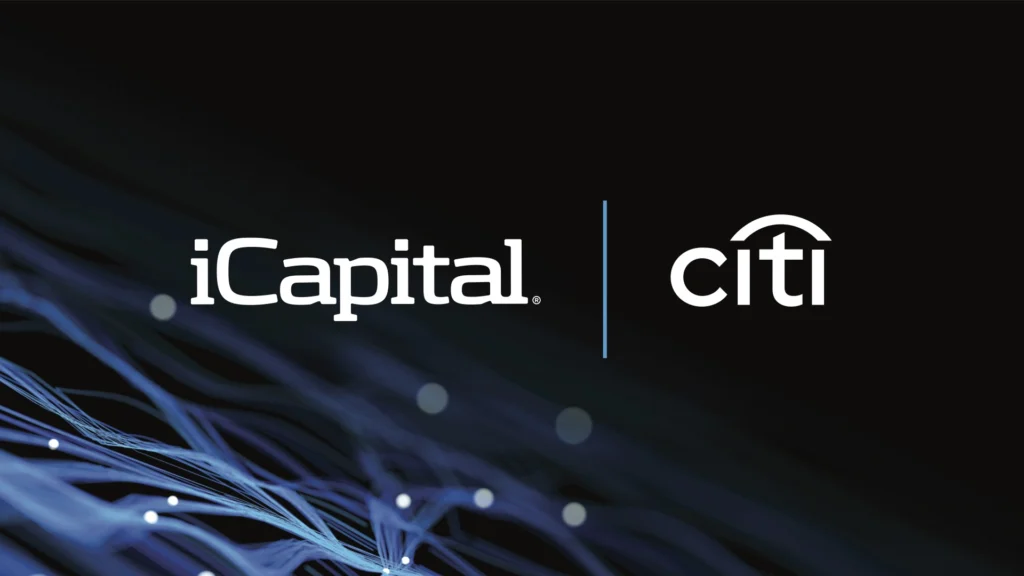Introduction
Easy access to affordable and reliable energy is integral to the modern world. Whether for industry, transportation, heating/cooling or simply turning on the lights and keeping our food fresh, readily available energy powers the global economy. Energy needs in the U.S. and around the world, especially in developing countries, are expected to climb dramatically in the coming years as millions of people in the rising middle class continue to consume more energy. In the industrialized world, the increased demand for energy has emerged in the form of a megatrend – the “electrification of everything,” which includes cars, industrial robots, and computing demand driven by the A.I. revolution. At the same time, how this demand for energy will be addressed is one of today’s pressing questions with important economic, political and social ramifications.
In the US, energy policy will likely be centered around energy independence and security. Perhaps unsurprisingly, fossil fuels seem destined to remain an important element regardless of the increasing market share taken by renewable energy sources. While renewable supply remains the largest source of energy to meet future demand growth, fossil fuels, led by oil and natural gas, continue to dominate existing demand. For example, forecasts looking at the overall mix of energy in 2050 indicate an increase in natural gas and oil supply. Despite enormous advances to reduce costs for renewable sources such as solar, they remain intermittently reliable compared to fossil fuels and not as easily scalable. Assuming fossil fuels – oil/petroleum, coal and natural gas – are not going away regardless of the administration in power, the question becomes which one, if any, has more investment potential and in which part of the market – upstream, midstream, downstream or niche.
Natural Gas – An Investment Opportunity
We believe certain energy-related private equity investments may be a profitable contrarian play for several reasons. This is particularly true for natural gas, which is the cleanest of the fossil fuels and has broad- based utility in homes, as a feedstock for the chemical industry, and as a fuel to meet growing power generation requirements. Most notably, on the back of surging demand in the U.S. and around the world, natural gas has become a transition fuel in the move away from coal. Unlike coal, which is dirty, natural gas is clean, cheap and plentiful, especially in the U.S. which has become a natural gas superpower and the largest producer in the world. In fact, the U.S. already exports significant amounts of natural gas and is set to export even more in the coming years as countries seek to secure reliable energy and new export terminals come online. Further, the supply backdrop is increasingly positive due to industry rationalization and a dearth of capital amidst periodic industry volatility over the past decade. These dynamics have both deterred many players from reentering the space and ensured the companies that remain are generally well managed, well capitalized and profitable. All told, we believe there is significantly more demand for capital than there is supply.
Since first upgrading our view on oil and natural gas companies at year-end 2023 (Private Markets & Hedge Fund Strategy Ratings – Q4 2023), iCapital has become increasingly positive, especially regarding natural gas given its broad-based demand drivers and prominent role as the transition fuel of choice. In fact, after bottoming in Q1 2024 the price of natural gas has more than doubled. Going forward, we believe oil and natural gas prices are likely to remain constructive, supported by a stable output regime, a domestic focus on energy production and meeting growing demand, and increased exports to Europe and Asia. Concurrently, however, there are also structural tailwinds that have been created by a capital mismatch. For example, following losses that occurred when the price of oil collapsed in the second half of 2014 through early 2016, banks dramatically pared back their lending to the sector.2 Similarly, private equity investment declined after 2015 when major bankruptcies negatively impacted the industry.3 As a result, industry participants have been forced to focus on operational efficiency, effectively managing their balance sheets and maintaining profitability. Driving free cash flow through operational efficiencies is now a much more important focus.
Surviving companies have had to become more rational, capital wise and increasingly specialized. They have also become quick to right-size their portfolios by divesting underperforming or non-core assets. Among publicly traded energy companies, this trend is even more evident, as many investors are focused on earnings growth, e.g. new exploration and production (E&P). Finally, private equity firms that might have previously been potential purchasers have either scaled back or failed, leaving only a few private equity funds with an opportunistic focus.
Ways to Invest
There are a number of private market opportunities investors may be able to access. The most direct access to oil and natural gas exposure is through E&P investments in companies actively engaged in land acquisition and new drilling or exploration. E&P can be extremely volatile given the discovery risk, development risk, and commodity sensitivity associated with it, and will exhibit a higher volatility of outcomes – more akin to private equity. These companies are often the target of a dwindling number of highly specialized private equity firms which aim to generate high rates of return. Also, these companies often have high degrees of both execution and commodity risk because unlike companies with proven, drilled, and producing (PDP) wells which can more easily hedge production, there is inherent commodity risk and capital markets sensitivity.
Other private strategies include those further down the energy value chain – midstream and downstream investments. Each segment has its own unique mix of pros and cons but generally has a risk profile that is more akin to infrastructure investing. For example, if an investor is more risk averse, they might be interested in a midstream company providing transportation and storage services that generates steady returns, primarily through current income. Downstream investments may include power generation and Liquified Natural Gas facilities.
Finally, there are niche investments, some of which can come with attractive risk/return features. For example, there are numerous PDP wells currently held within large public oil and gas company portfolios. These wells often have drilling lives in excess of 30 years and in a diversified portfolio can produce considerable amounts of stable cash-flow. Market dynamics are such that these public companies are often rewarded (through higher stock prices) by delivered growth, versus holding low/no growth annuity streams, creating an incentive to divest these assets. There are specialist managers who seek to actively acquire and manage these wells, materially hedge the commodity price risk associated with them and at the same time isolate the long-term cash-flow streams. Strategies such as these may provide a lower-risk, less correlated exposure within the overall energy market.
One potential benefit across private energy investment is its tax treatment. For taxable investors, these strategies can often have tax advantages due to depreciation and/ or depletion offsets which can generate attractive after- tax yields. Importantly, these strategies can be more of an annuitized play on overall production rather than a significant bet on the direction of commodity prices.
Conclusion
Investors have often thought of an investment in oil and gas companies as speculative, one highly dependent on the price of the underlying commodity. While these opportunities still exist, in many instances an investor can find a range of high-quality companies which are no longer pure commodity plays. Volatility remains to be certain, and sentiment will continue to impact prices and access to capital, but energy exploration and production has become much more of a manufacturing process – disciplined, more mature with measured upside potential and increasingly well managed downside risk. A fund which invests in these companies may be worth considering for those investors with a desire to capture a potentially contrarian investment opportunity, especially in an environment in which the impact of the fracking technology revolution continues to be felt in the U.S. and globally in the form of cheap, abundant and relatively clean natural gas.
Endnotes
1. Victoria Zaretskaya, “The United States remained the world’s largest liquefied natural gas exporter in 2024,” U.S. Energy Information Administration, March 27, 2025.
2. Asjylyn Loder and Jodi Xu Klein, “Oil drillers feel the pain as banks slash their credit lines,” Bloomberg, April 12, 2016.
3. Nathan Williams, “Energy: No more quick flips,” Private Equity International, July 13, 2018.
Important Information
The material herein has been provided to you for informational purposes only by Institutional Capital Network, Inc. (“iCapital Network”) or one of its affiliates (iCapital Network together with its affiliates, “iCapital”). This material is the property of iCapital and may not be shared without the written permission of iCapital. No part of this material may be reproduced in any form, or referred to in any other publication, without express written permission of iCapital.
This material is provided for informational purposes only and is not intended as, and may not be relied on in any manner as, legal, tax or investment advice, a recommendation, or as an offer or solicitation to buy or sell any security, financial product or instrument, or otherwise to participate in any particular trading strategy. This material does not intend to address the financial objectives, situation, or specific needs of any individual investor. You should consult your personal accounting, tax and legal advisors to understand the implications of any investment specific to your personal financial situation.
ALTERNATIVE INVESTMENTS ARE CONSIDERED COMPLEX PRODUCTS AND MAY NOT BE SUITABLE FOR ALL INVESTORS. Prospective investors should be aware that an investment in an alternative investment is speculative and involves a high degree of risk. Alternative Investments often engage in leveraging and other speculative investment practices that may increase the risk of investment loss; can be highly illiquid; may not be required to provide periodic pricing or valuation information to investors; may involve complex tax structures and delays in distributing important tax information; are not subject to the same regulatory requirements as mutual funds; and often charge high fees. There is no guarantee that an alternative investment will implement its investment strategy and/or achieve its objectives, generate profits, or avoid loss. An investment should only be considered by sophisticated investors who can afford to lose all or a substantial amount of their investment.
iCapital Markets LLC operates a platform that makes available financial products to financial professionals. In operating this platform, iCapital Markets LLC generally earns revenue based on the volume of transactions that take place in these products and would benefit by an increase in sales for these products.
The information contained herein is an opinion only, as of the date indicated, and should not be relied upon as the only important information available. Any prediction, projection or forecast on the economy, stock market, bond market or the economic trends of the markets is not necessarily indicative of the future or likely performance. The information contained herein is subject to change, incomplete, and may include information and/or data obtained from third party sources that iCapital believes, but does not guarantee, to be accurate. iCapital considers this third-party data reliable, but does not represent that it is accurate, complete and/or up to date, and it should not be relied on as such. iCapital makes no representation as to the accuracy or completeness of this material and accepts no liability for losses arising from the use of the material presented. No representation or warranty is made by iCapital as to the reasonableness or completeness of such forward-looking statements or to any other financial information contained herein.
Securities products and services are offered by iCapital Markets, an SEC-registered broker-dealer, member FINRA and SIPC, and an affiliate of iCapital, Inc. and Institutional Capital Network, Inc. These registrations and memberships in no way imply that the SEC, FINRA, or SIPC have endorsed any of the entities, products, or services discussed herein. Annuities and insurance services are provided by iCapital Annuities and Insurance Services LLC, an affiliate of iCapital, Inc. “iCapital” and “iCapital Network” are registered trademarks of Institutional Capital Network, Inc. Additional information is available upon request.
©2025 Institutional Capital Network, Inc. All Rights Reserved.






















